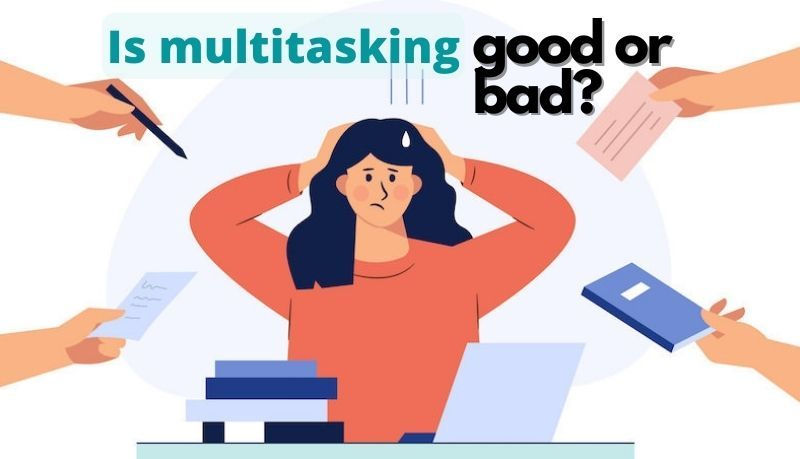We aren t as good at multitasking as we think we are

We Aren’t as Good at Multitasking as We Think We Are

In today’s fast-paced world, multitasking has become an essential skill that many of us pride ourselves on. We believe that juggling multiple tasks simultaneously makes us more efficient and productive. However, the truth might surprise you: we aren’t as good at multitasking as we think we are.
Research has consistently shown that multitasking actually hinders our ability to perform tasks effectively. Instead of accomplishing more in less time, trying to tackle multiple tasks at once often leads to reduced productivity and lower quality outcomes.
One study conducted by Stanford University found that people who regularly engage in multitasking have difficulty filtering out irrelevant information. This means that they struggle to focus on the task at hand and easily get distracted by unrelated stimuli. As a result, their overall performance suffers.

Moreover, multitasking can negatively impact our cognitive abilities. When we switch between tasks, our brain needs time to adjust and refocus. This switching process, known as “task-switching cost,” leads to decreased concentration and mental fatigue. As a consequence, we become more prone to making mistakes and experiencing memory lapses.
While it may seem efficient to check emails while attending a meeting or respond to text messages during a work assignment, these constant interruptions prevent us from reaching a state of deep focus and flow. Our attention becomes fragmented, and we struggle to give our full concentration to any single task.
It is important to note that not all tasks are suitable for multitasking. Some activities, such as listening to music while going for a walk, can be carried out simultaneously without significantly affecting our performance. However, when it comes to complex or demanding tasks that require critical thinking and problem-solving, multitasking proves to be a hindrance rather than a benefit.
To genuinely improve our productivity and efficiency, it is crucial to adopt a more mindful approach to task management. Instead of attempting to multitask, we should prioritize and allocate dedicated time for each activity. By focusing on one task at a time, we can fully immerse ourselves in the process and produce better results.
In conclusion, contrary to popular belief, we aren’t as skilled at multitasking as we perceive ourselves to be. Research shows that multitasking impairs our ability to filter out distractions, negatively impacts cognitive functioning, and ultimately reduces our overall productivity. To maximize our effectiveness, it is essential to prioritize single-tasking and give our undivided attention to the task at hand.
Tags
Share
Related Posts
Quick Links
Legal Stuff

